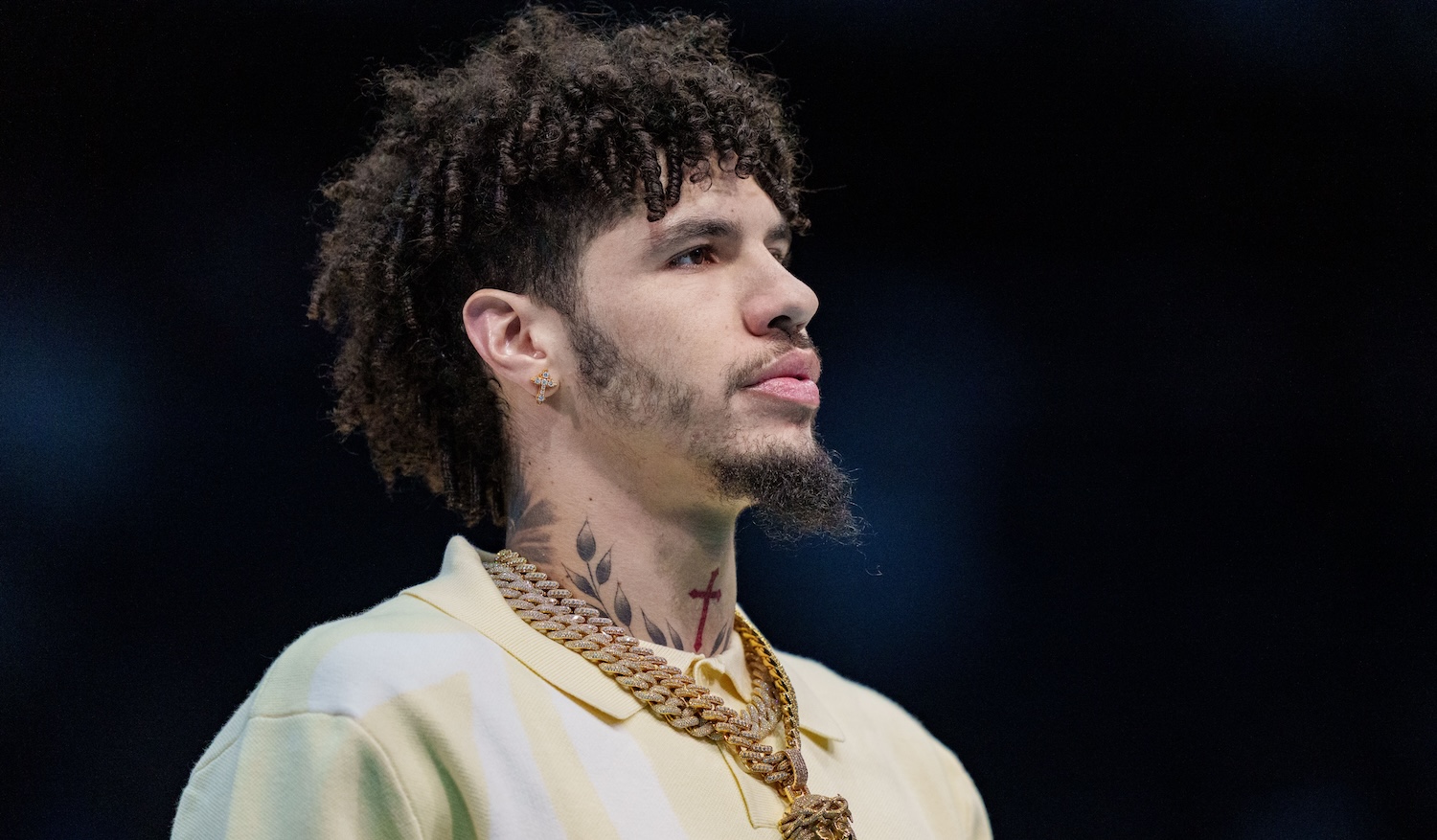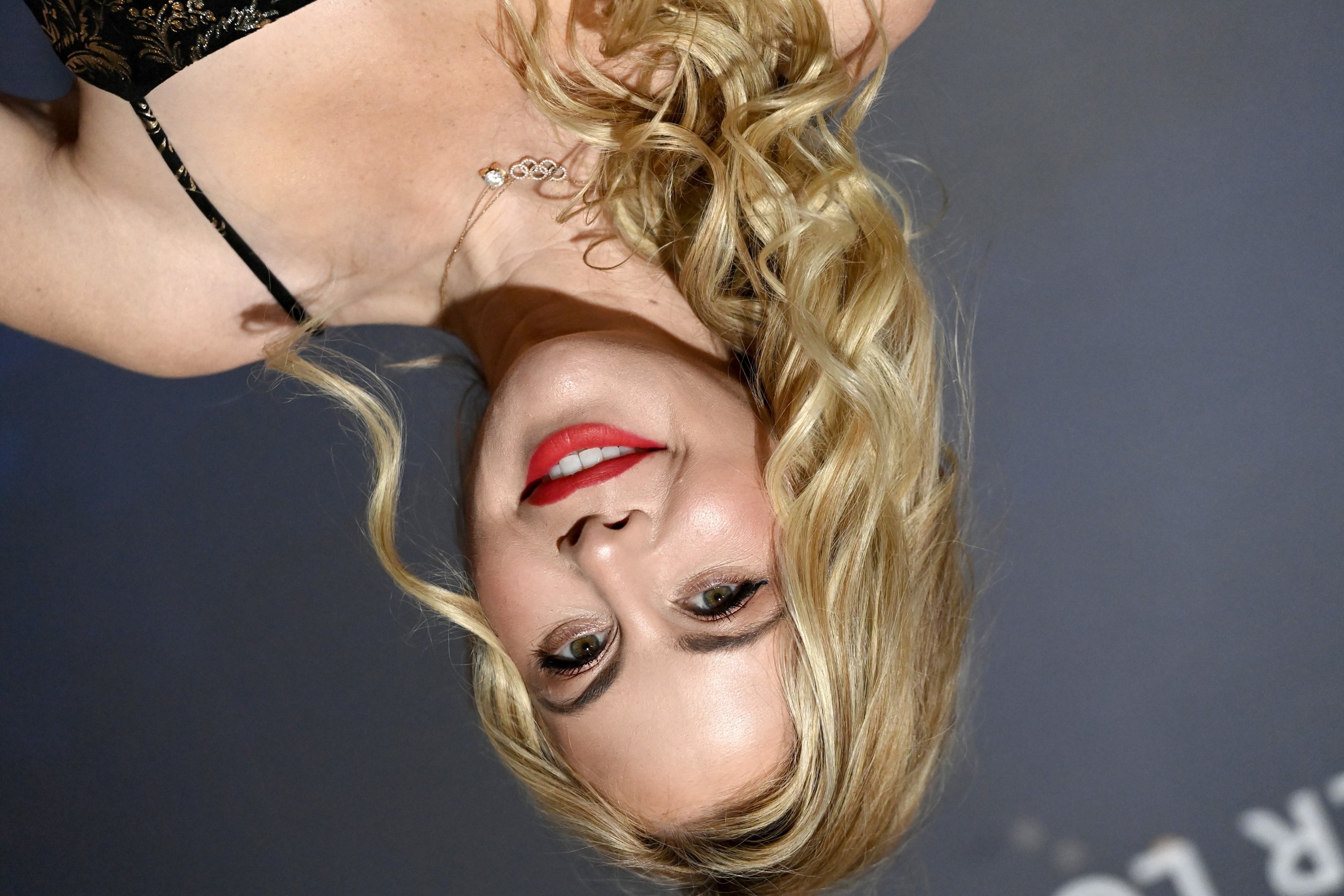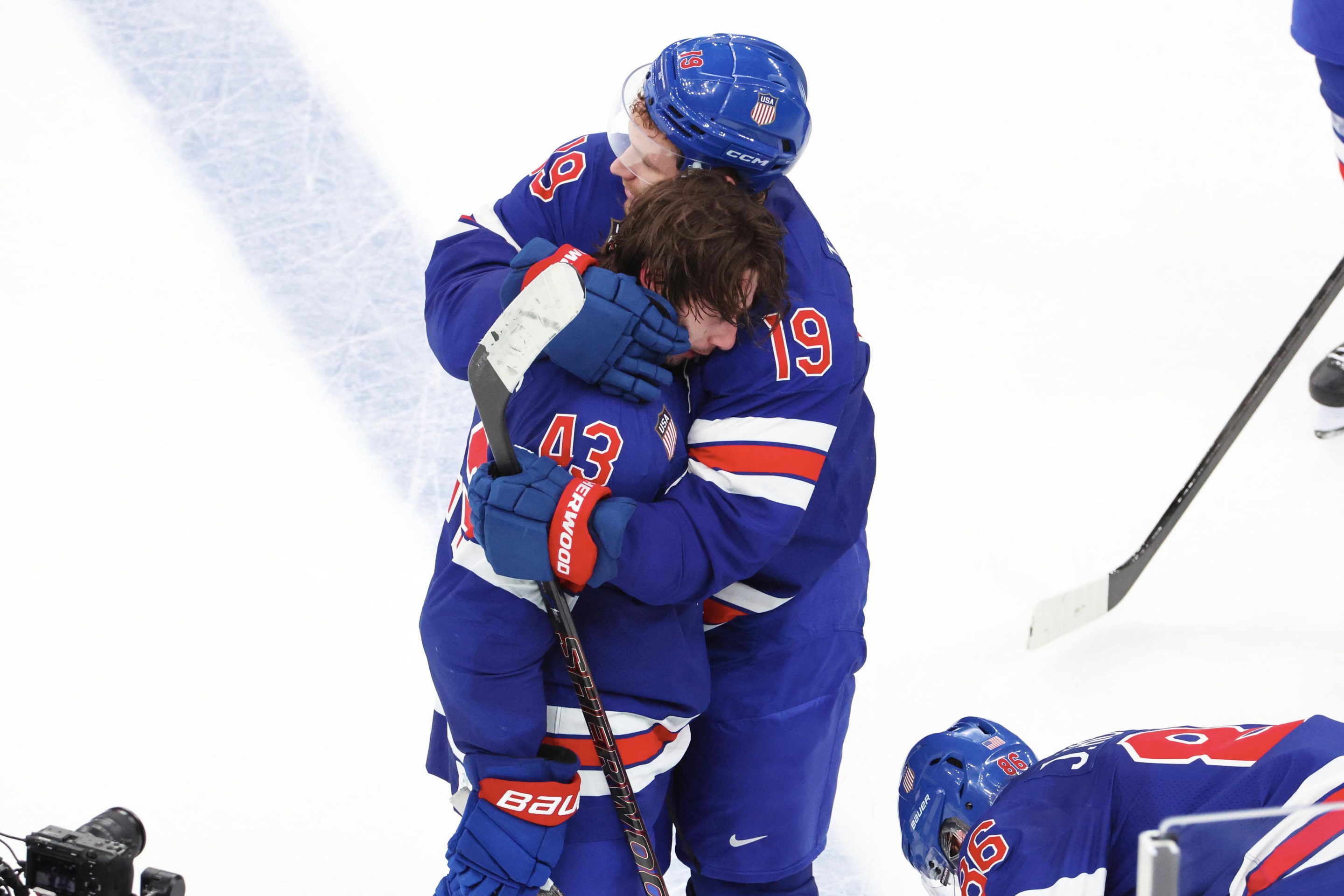The last few years have seen the revival of many dormant musical acts. Oasis is well over halfway through a reunion tour that, for decades, had been the stuff of rumor. Radiohead is set to go on the road after nearly a decade of solo projects. Rilo Kiley kicked off their first tour since 2008. Meanwhile, acts as diverse as Dead & Co., the Backstreet Boys, and LCD Soundsystem have all dabbled in the concert residency. Add to that the wider festival circuit, and there’s a slightly giddy feeling that anything could happen, anyone could return to the stage.
This resurrection of various eras of music, at least in a live setting, dovetails with the perennial topic of generations and how style, taste, and iconography can be endlessly recycled. The refrain “[insert decade here] are so back” attains both a pejorative and positive connotation depending on who’s saying it and who’s being pointed at. The indie band Grizzly Bear, known for pulling from a wide range of influences including jazz, ’60s rock, folk, and chamber pop, was on the receiving end of this conversation when they fully arrived on the scene in New York in the mid-late aughts. Together with a perceived vanguard of now-famous indie names like Beach House, the Yeah Yeah Yeahs, Owen Pallett, Band of Horses, and Animal Collective, Grizzly Bear carved out an idiosyncratic niche across five constantly evolving albums, at once challenging and accessible, beloved by the Pitchfork set and Twilight fans alike.
In 2020, the band entered a hiatus, with its members exploring different creative avenues. Daniel Rossen, multi-instrumentalist and co-lead vocalist, continued to work on solo music he had been developing apart from Grizzly Bear, culminating in his debut LP You Belong There in 2022, which featured percussion from bandmate Christopher Bear. I first spoke to Daniel shortly after the album’s release, when the possibility of a Grizzly Bear reunion was a matter of fan wish fulfillment rather than reality. Now, the band is set to hit the road for a small string of dates in key major American cities. I reached back out to Daniel, who now lives in Santa Fe, N.M., to ask if I could chat with him about how things have changed in the years since his solo album (among other things, he scored Celine Song’s Past Lives, also with Chris Bear). We talked about how the band got back together, the challenge of balancing art and life, the state of the music industry, and what those early years of Grizzly Bear meant for a standout era of ambitious indie rock. This conversation has been edited for length and clarity.
How's your summer been?
It's been fine! We were in up Central New York for a couple months, back at our old spot. It's a good place to kind of hide and work, to some degree. I mean, it's not like Santa Fe is some bustling metropolis.
We spoke back in 2022, when your solo album came out and you had just started a small tour. I never had a chance to ask you how the rest of that experience was.
It was very, very stripped down—I went out by myself in my car. Trying to make those songs work involved a lot of focus for that kind of intricate finger-picking style, which made up a lot of that record. There were some really memorable shows because they were very intimate, and you were right there with the audience. It felt like a very pure exchange. And then there were also nights that were super depressing where, like, nobody showed up.
As we had discussed before, I put a lot into that record. To some degree now, when I think back on it, I think I was trying to prove something with it. When you go out and you try to promote it and play it for people and it doesn't quite go exactly how you expect—it just didn't really land. I did enjoy touring it, though. It felt very inspiring, and as soon as I was done, I felt like I had aged 10 years and I also had a sense of I don't know who I'm making this for anymore. Maybe I'm a hobbyist now. I've heard this from other similarly aging colleagues out there trying to make music into their midlife. It's not an uncommon thing for a lot of us who don't have a huge built-in infrastructure and fan base.
Did you feel like that was ever true with Grizzly Bear?
No, we always had that infrastructure, a crew, and we had this whole catalogue of music. There was only so low it could go. We had a good solid 14 years there of doing something together. When we stopped touring, it felt like a natural endpoint. That last record [2017’s Painted Ruins] felt like a different process. The creative vibe was very different than previous records. At least that's how I felt. That time, the 2010s in the music industry, tastes really were shifting around us. Not to say that we carried some old-fashioned tradition of indie rock, but we were caught in that transition in a strange, slightly awkward way. We weren't totally aware of that at the time, but when I look back, I can see the changing taste. I think after our early career, there was so much pressure to keep up with the catalog we had previously made. It just kind of hit us a little too hard that time around.
Coming back now, really we just got to a point where it felt like it would be nice to revisit this music and see how it feels again. With the perspective of all this time away and everything that has changed in our lives, without too much pressure beyond that. Maybe something could come of the band after that, but for me this is like an entry point back into being in a room with those guys.
How did that conversation start? Did the idea of revisiting things seem like it had percolated for the other band members around the same time?
We had been mulling about it for the last year and a half or so. There was a little bit of pressure from the outside around us to consider it and I understood it. Why spend all this time in your life building this band and then just walk away? It's a strange thing to do. Obviously, you have to have good reasons and I think there were good reasons but we had to really talk through how we felt about doing this again. There was also some reservation about the idea of coming back without an album, without new music. I just saw the other day that Radiohead is doing shows.
It seems like we’re in a new paradigm where a fair number of musicians have been hitting the road without necessarily promoting new work.
Yeah, I saw people complain as soon as Radiohead made that announcement, "Oh, this is just a cash grab." That was definitely something we were sensitive to. Is this going to look like something shameless? But I don't really buy into that. You don't necessarily want a band to come back and do a new record unless there's a record to make. The Pixies tour—do we want a new Pixies record? I don't know. Maybe. Maybe not. It’s the same with any other band, and for us, I think we’re using this as more of a starting point. We live in totally different places, and while I've seen those guys a little bit, we have so little familiarity with what each of us is even into musically. It would take a long time to find that again, if we're going to find it, and I just feel like this is a better way to start.
We're going to do our thing again and maybe even dig out songs we didn't play in the past. I've been revisiting the earliest incarnation of the live band, which was like 2005, where it was mostly Horn of Plenty songs, very spacey, drawn-out stuff. There's a couple snippets of performances of what we sounded like then and it felt like it would be exciting to integrate some of that back into the set, kind of exploring all the different incarnations of the band over that long stretch of time. And if you're not promoting an album, you can do that.
There was a real driving progression from the more acoustic, smaller sound on Horn of Plenty to Yellow House and then to the bigger, “indie” sound on Veckatimest. Was there a push to go in a certain direction sonically?
In my memory, it was just us exploring whatever we were feeling and into at the time.
The Horn of Plenty songs were pretty different, very melodically driven, a bit simpler and then they were reinterpreted in this messy band way on the road, which didn't exactly make its way onto Yellow House. There’s sections, like the end of “Lullabye,” that's this big bombastic thing that kind of came out of the live set. But then that acoustic intricate arrangement, some of that was what I was doing in my own home demos. That was an energy I think I was bringing. So it was putting that on the band and then seeing what everyone would do if we worked in that mode.
We weren’t exactly aware of what was going on in indie rock, but that's part of looking back. We just were part of whatever was happening. On Friend, we wanted to take that live energy and apply it to Yellow House, and that's also how we did those songs anyway because we couldn't do extra intricate arrangement stuff on the road. Reinterpreting that sound with more of a rock band is kind of how you arrive at Veckatimest, where you have songs like “Fine for Now,” where it's definitely a rock band playing together. And then, on top of that, we would add back in the energy from Yellow House with woodwinds and whatever else.
So my memory was it was whatever we were into and thinking about. If anything, a lot of our discussion was probably about older music outside of the genre of indie rock—Neil Young or Blue Cheer—and melting those things in a little bit. At that time, when you're in your mid-20s and you're just cranking, you're just not thinking about anything that much. [laughs]
A lot of my perception, especially around the release of Veckatimest, was the sheer ubiquity of “Two Weeks” as a single. I mean, I heard it all the time. I wonder if that’s where this perception of a push towards “indie rock” comes from.
That's still the song most people know. It was fun to make. It definitely was us being like, “Let's make a pop song.” But it's funny: You listen to that record and it doesn't really fit, it’s not related to almost anything else on there.
Yeah, compared to a song like “I Live With You,” which sounds like it’s on a different planet.
They were on different planets. That's what you have to remember: There were different little songwriting teams in the band. Grizzly Bear was just the container. Like with “Two Weeks,” Ed [Droste] and Chris Bear would have this little corner that they worked in where they would do these really great, much more melodically driven songs. “Ready, Able” is another one of those. I would work around the edges of those things, but I wasn't writing those songs. Then I had my crazy-ass arty corner where I would do things like “I Live With You” and “Fine For Now” and make a mess. They were all important to the general picture of what we were doing.
What’s your perspective on the genre these days?
In the last year, there's been lots of really great stuff, actually. There's so much happening right now. A lot sounds driven by a lyrical persona and narrative, which is really cool. When that works, it's great. But it's funny because the focus can be so heavily on that that the music becomes almost pastiche. Like, We're doing Tom Petty or we're doing Neil Young right now, these variations of slacker rock that are not pure nostalgia, but lean pretty heavily in that direction.
That period—2009, 2010, 2011—was a huge time for this cohort of indie music that included so many bands you guys either toured or collaborated with. I always forget Victoria Legrand from Beach House does the backing vocals on “Two Weeks.”
Yeah, we did like 15 tours with them.
Did it feel like there was a concerted group of you all coming up at the same time, or was it more fractured than that?
I think it was a little bit fractured. Or just not so cohesive. We certainly rejected it at the time. Anytime we did interviews back then, someone would ask, "What do you think about the Brooklyn scene?" I didn’t know what that was. We knew some of those people, but we weren’t all hanging out in coffee shops together talking about chord changes. People often think about Dirty Projectors, Grizzly Bear, Animal Collective’s Merriweather Post Pavilion. There's that little trio of records in 2009, though we had no interaction with Animal Collective. We saw [Dirty Projectors frontman] Dave Longstreth a fair amount in Brooklyn, and we toured with them. Chris Taylor recorded one of their records in his apartment.
There was a little bit of friendly, positive competitiveness. I think now people look back and it just seems like a lot of pretentious bullshit, and that's fine, but at the time, there was a real sense of openness. It really felt like there was some possibility of pushing genre boundaries in a slightly novel way.
There was also that period where so many indie bands were being featured in movie soundtracks. Tracks from Veckatimest were in Philip Seymour Hoffman’s movie Jack Goes Boating and Blue Valentine. You guys did a Twilight song, “Slow Life,” with Victoria from Beach House.
Twilight was funny because they basically just asked us, “Why don't you submit something?” So we made a couple things, and that's the one we picked. “Slow Life” wasn't scored to the film. We hadn't seen anything. They were just like, “Submit music.” With Blue Valentine, we were going to score that film. The plan was to do it. We had been talking with the director at different phases of the script, and he was sending us different drafts, then it changed and then they filmed it and all of that was going on at the same time that we were recording Veckatimest. Then our schedules got insane, and by the time he was at the point where he needed to really score the film, we were so busy touring we just decided to use pieces of the record that we made.
You’ve done a bit of scoring yourself. Notably Past Lives, with Chris Bear.
I did another small film called The Line, which didn't really quite get out there, but it was interesting to work on. I like the score a lot. The film's cool, but it just was too dark and weird to make it very far.
How did this upcoming tour take shape? It’s a fairly short run of shows.
I think the initial plan of this run is that it's a way to hit the big cities and not get on a bus. [laughs]. I was debating whether we'd want to keep it smaller, just start small. But it's hard to do that from our perspective, because there's pressure to make it an event. It can't just be like, Oh yeah, we'll go to LA and play the Lodge Room or something. It's like, No, you can't do that. You have to play five Brooklyn Steels. It’s about balancing the desires of everybody in the crew around you, and what people expect a band like us to do when they're back. You have to come back and make a big old press release and do these residencies in different towns. It'll be good. It's a compact run. I think all of us need a little bit of adjustment back to playing on bigger stages anyway.
The residency format is interesting—I see it more and more often with different venues and bands.
LCD Soundsystem’s been doing that for a long time. TV On The Radio did their version last year. For us, it’s a new option. We would occasionally get proposals from the booking agent like, “Do you want to do this and how about this time frame?” Boring logistical stuff. I think we felt we needed to start with a small number of shows and see how it feels and then if it feels good we can expand it from there.
Have you been keeping up with newer music? Last time we talked, you mentioned influences like Baden-Powell and Rahsaan Roland Kirk for your solo record, and in this conversation, we’ve been talking about indie rock. Is it your natural inclination to keep an eye on things?
The last couple years, I've been trying to follow more of what's happening. Just to resist getting old and stuck in my taste. It's more interesting to try to keep up with things than to walk away. Talking about bands opening for us on this tour was definitely a good way for us to talk about taste and what we're into, which is an important part of getting back together again. Around COVID, there wasn't very much music that I thought was any good. It does feel like something shifted around 2024, or maybe it was music that came at me. I barely get to see any live music because I live in these far-off places where nobody tours. But even seeing a huge name of the last couple years, like MJ Lenderman, is exciting. I saw his band play in Santa Fe, and it was very refreshing to see a bunch of people on the stage clearly enjoying playing with one another and really killing it. There’s a hunger for that.
One thing that has been nice, I've found, in the last couple years is I feel like I've been able to discover more individual curation of critics that have gone off on their own to some degree, which is something that I had missed for a long time. In the early blog days, there was a lot more of that, people that thought about music that wanted to talk about it in their own space, and that was one way you could find new stuff. And that really disappeared. But I do feel like that's coming back in the wake of a lot of publications folding or getting diluted. Now I just follow individual critics, and that's more how I find out about most music. There's no point in even talking about the AI aspect of it. That's both depressing and feels pointless to even try to predict where that's going to go. But I have the feeling that there's a renewed appreciation of people that can perform music on an instrument in a room and do it in a way that's fun. I think it's more valuable right now than in previous years. That's the optimistic note that I would want to hold on to.
Is it too early to sense how getting back together with the band feels?
I don't know yet. Most of these discussions have been email exchanges. That's what I'm excited to find out doing these rehearsals again, actually having everybody spend some real time together. It’s different than the early years because we definitely knew what the starting point was with the band. Chris Taylor and Chris Bear and I went to school together, we had been trying little projects when we were young anyway, so we all knew where each other's taste was. Now it's a whole different ballgame. We are all middle-aged men with different lives and different expectations. I remain open to the idea that this could result in new music. But we have to start where we can start, and this feels like the right place. Just playing songs again in the room.






